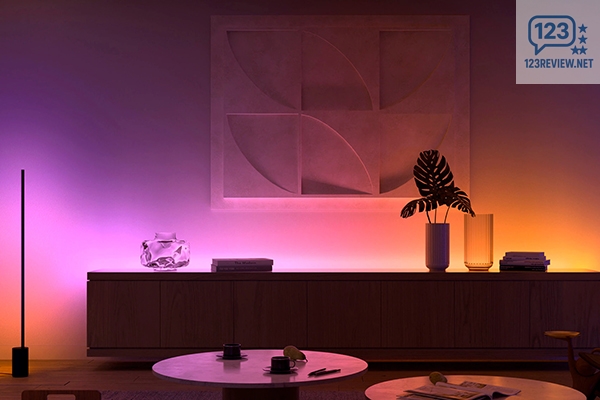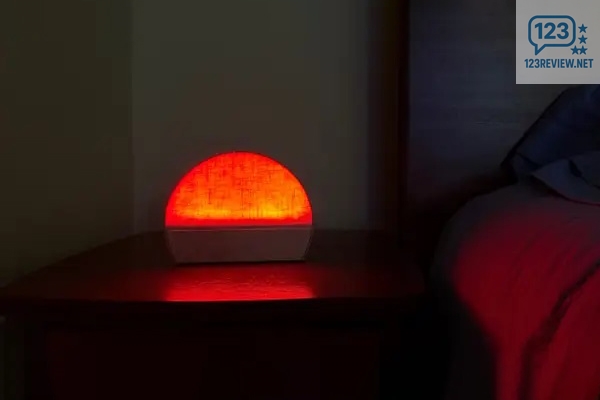When I first started experimenting with smart home devices, I fell for the hype — the kind that promises a “connected home” where everything just works. What I got instead were confusing apps, Wi-Fi drops, and too many notifications. But after living in a small New York apartment long enough, I’ve learned which smart devices actually make daily life easier — not more complicated.
In this review, I’ll share the ones that truly make sense: the gadgets that blend into routines, save time, and quietly do their job without turning my home into a sci-fi command center.
Smart Lighting That Feels Effortless
Smart lighting was my first real “aha” moment. I use Philips Hue bulbs in my living room and bedroom — nothing fancy, just soft white tones. What makes them great is how seamlessly they fit my rhythm. They fade in slowly in the morning, dim automatically after sunset, and I can control everything from my phone or voice.

The key is restraint. I don’t try to color-shift my apartment like a nightclub. Instead, I keep things simple — warm light for evenings, cooler light for work. It’s one of those upgrades that you stop noticing, which is exactly the point.
Smart Plugs for Everyday Control
A smart plug doesn’t sound glamorous, but it’s surprisingly useful. I’ve connected one to my coffee maker and another to my fan. Every morning, I just say “Good morning” to my speaker, and my coffee starts brewing. That tiny bit of automation feels oddly luxurious.
The other perk is energy tracking. It’s nice to see how much power a device actually uses — it makes me more conscious about leaving things plugged in.
Smart Speakers That Double as Assistants
In a small apartment, every object has to multitask. My smart speaker (Google Nest Audio) handles music, reminders, and voice control for other devices. It’s also my kitchen timer, my weather report, and occasionally my recipe guide.
But I’ve learned to turn off “personalized ads” and unnecessary suggestions. Once you strip away the noise, it becomes what it should be — a helpful assistant, not a salesman.
A Smart Thermostat That Learns You
Heating and cooling are big deals in city apartments, especially when energy bills spike in winter. The Nest thermostat pays for itself over time. It learns when I’m home or away and adjusts automatically.
I like that I can check the temperature remotely — no coming home to a freezing room. It’s the kind of tech that makes sense because it focuses on comfort and savings, not showing off.
Robot Vacuums That Actually Clean
I resisted robot vacuums for years, assuming they’d just bump around and get stuck. But the newer models, like the Roborock Q7 Max, genuinely clean well. It maps the apartment, avoids cables, and doesn’t try to eat my sneakers.
For a small NYC place, this is gold. It runs while I’m out, and I come home to clean floors. It’s not perfect — it can’t do corners or stairs — but it’s one of those devices that quietly justifies its existence.
Smart Locks and Door Sensors
One underrated upgrade: a smart lock. I use a Yale model that works with my phone or a PIN. No more fumbling for keys when carrying groceries. And if I forget to lock the door, it does it automatically.
Door sensors also make sense if you travel. They’re simple, inexpensive, and provide peace of mind without turning your home into a surveillance zone.
When Smart Doesn’t Mean Better
Not everything labeled “smart” deserves the name. I tried a Wi-Fi-connected toothbrush once — never again. Same with a smart mirror that crashed mid-shave. A lot of “smart” products are just regular ones with an app attached.
The real test: does it solve a real problem, or does it just add one?
My Smart Home Setup in NYC
To keep it practical, here’s what I actually use daily:
- Smart bulbs (Philips Hue)
- Two smart plugs (TP-Link Kasa)
- Smart speaker (Google Nest Audio)
- Smart thermostat (Nest)
- Robot vacuum (Roborock Q7 Max)
- Smart lock (Yale)
That’s it. No overkill, no tangled ecosystem. Everything connects through one platform and behaves predictably.
My Verdict
A smart home shouldn’t feel futuristic — it should feel natural. The best devices are the ones you stop thinking about because they just work.
After years of testing, I’ve realized it’s not about having every new gadget, but about finding the few that quietly make life smoother. For city living, that means small, simple, and reliable.
Written and tested by Chi Tran for 123Review.net.
Affiliate links may earn a commission, but opinions are my own.









